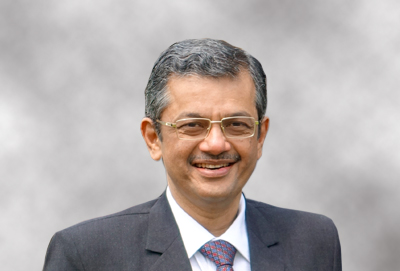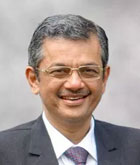
The COVID-19 pandemic has brought to fore the critical importance of a different approach to healthcare and socialising as we know it. Healthcare even in the most advanced countries is focused on individual healthcare. We now have to think about public healthcare, especially in an outbreak situation. In epidemics the issue is the high number of patients who arrive at hospitals all at the same time. This can have a negative impact on healthcare systems, which are not used to coping with these kinds of numbers every day. Adapting to this is not easy. A complete change of approach is needed. We have to practise ‘physical distancing’ not just now but for a long time to come. And the way we travel will change forever. This will also change the ways Rotary clubs function and the way we organise events and fellowships. These are unprecedented challenging times. But districts and clubs in our zones are doing well, adapting to the change. Many districts are organising training events online and clubs are holding meetings on Zoom. This could be a good way forward to attract young professionals and women into Rotary’s fold.
April is Maternal and Child Health month. Women and children suffer the greatest burden from disease globally. Diarrhoea and pneumonia are the largest killers of children under five. Women lack access to healthcare in many parts especially during pregnancy. Through Rotary we provide critical vaccines that protect against childhood illnesses, we combat chronic malnutrition; and through our VTTs for maternal health in various parts of the world we have been able to sustainably reduce maternal mortality. By doing all this and more we ensure better access to information and healthcare to women and mothers so that they can plan for healthier families and in turn promote economic well-being.
Every year over 300,000 mothers die from complications around pregnancy and childbirth in the world; 30,000 of these maternal deaths are in India. India accounts for 10 per cent of all maternal deaths worldwide. Apart from medical reasons like postpartum haemorrhage, hypertension and others an important cause is illegal abortions and unintended pregnancies, particularly among adolescents. Out of every 1,000 children born 22 do not live up to one month of age and 31 do not live up to one year. All these can be prevented by a multi-pronged approach including education, nutrition, access to affordable healthcare, safe water, proper sanitation and hygiene and timely treatment for mother and child. Through Rotary we have the opportunity to truly Connect the World with the message — Every mother is important, every child counts.
Enjoy Rotary, Enjoy Yourself.
Dr Bharat Pandya,
RI Director, 2019-21






